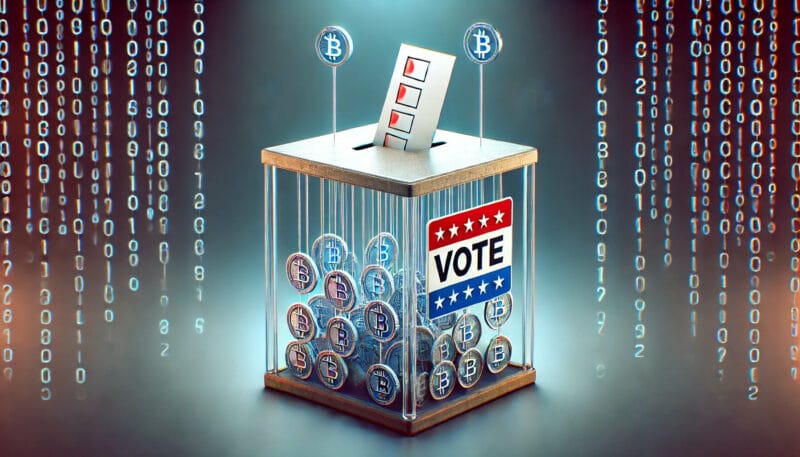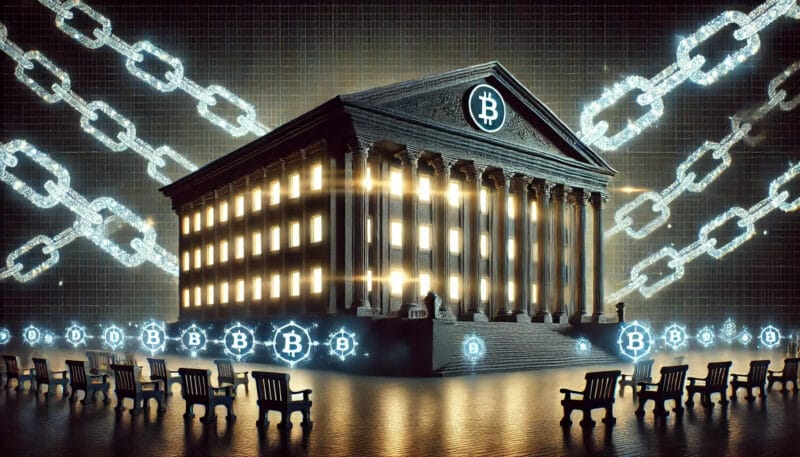1. Introduction: The Need for Innovation in Government Services
Government services are vital to society, providing citizens with essentials such as healthcare, education, and public safety. However, these services often face inefficiencies, delays, and a lack of transparency. As governments seek to modernize, blockchain technology emerges as a promising solution. With its decentralized, transparent, and secure nature, blockchain can transform how governments operate, offering more efficient and transparent services to citizens.
Why Blockchain Matters for Government Services:
Blockchain technology can address many inefficiencies in government services by providing a decentralized, transparent, and secure platform for managing public records and transactions.
2. How Blockchain Can Transform Government Services
2.1 Enhancing Transparency and Reducing Corruption
A major challenge in government services is the lack of transparency, leading to corruption and misuse of funds. Blockchain can address this issue by providing a transparent and immutable ledger of all government transactions and activities. Every transaction recorded on a blockchain is visible to authorized participants, ensuring data cannot be altered. This transparency helps reduce corruption by making it easier to track public funds and hold officials accountable.
- Key Benefits:
- Immutable Records: Blockchain ensures that government transactions are transparent and accountable.
- Corruption Reduction: Blockchain makes it harder to alter records, reducing corruption.
- Public Trust: Increased transparency enhances citizens’ trust in government institutions.
2.2 Streamlining Government Processes
Government services are often burdened by complex processes involving multiple intermediaries. Blockchain can streamline these processes by automating transactions and enabling real-time verification of information. For example, blockchain can automate the issuance of licenses and certificates, reducing time and costs. Smart contracts—self-executing contracts with the terms of the agreement written into code—can further enhance efficiency by automatically executing processes when conditions are met.
- Key Benefits:
- Process Automation: Blockchain reduces the need for intermediaries and speeds up service delivery.
- Real-Time Verification: Blockchain enables real-time verification, reducing delays and errors.
- : Blockchain helps governments save time and resources by streamlining processes.
2.3 Securing Sensitive Data and Citizen Information
Governments manage vast amounts of sensitive data, including personal information and legal documents. Ensuring the security and privacy of this data is crucial, especially with increasing cyberattacks. Blockchain offers a secure solution by providing a decentralized and encrypted platform for storing information. Unlike centralized databases, blockchain is resistant to hacking, making it ideal for protecting citizen information.
- Key Benefits:
- Data Security: Blockchain’s decentralized and encrypted nature reduces the risk of data breaches.
- Privacy Protection: Blockchain allows citizens to control access to their personal information.
- Resilience: Blockchain’s distributed architecture is more resilient to cyberattacks, ensuring continuous service delivery.
2.4 Improving Voting Systems and Electoral Integrity
Blockchain technology can also enhance voting systems, offering a secure platform for conducting elections. Traditional voting systems are vulnerable to fraud and technical failures. Blockchain-based voting systems provide a transparent and immutable record of all votes cast. Each vote is securely recorded on the blockchain, ensuring it cannot be altered. Additionally, blockchain enables remote and online voting, making it easier for citizens to participate.

- Key Benefits:
- Electoral Integrity: Blockchain ensures the transparency and integrity of the electoral process.
- Remote Voting: Blockchain enables secure online voting, increasing accessibility.
- Fraud Prevention: Blockchain prevents electoral fraud by eliminating the possibility of altering votes.
3. Challenges and Considerations for Blockchain in Government Services
3.1 Regulatory and Legal Challenges
While blockchain offers significant benefits, it also presents regulatory and legal challenges. Governments must ensure that blockchain systems comply with existing laws, particularly those related to data privacy and security. The decentralized nature of blockchain can also create legal uncertainties, especially regarding jurisdictional issues and contract enforcement.
- Key Challenges:
- Regulatory Compliance: Ensuring that blockchain systems comply with relevant laws can be complex.
- Legal Uncertainty: The decentralized nature of blockchain can create legal uncertainties.
- Standardization: Developing standards for blockchain in government services is essential for interoperability.
3.2 Adoption and Integration
The adoption of blockchain technology in government services is still in its early stages. Many governments may hesitate to implement new technology due to concerns about cost and potential disruption. Additionally, integrating blockchain with existing government systems may require significant investment.
- Key Challenges:
- Cost and Complexity: Implementing blockchain in government services requires investment in technology and infrastructure.
- Resistance to Change: Governments may hesitate to adopt new technology due to potential disruptions.
- Integration with Existing Systems: Integrating blockchain with existing infrastructure may be challenging.
3.3 Technical and Security Concerns
While blockchain is secure, it is not immune to technical challenges. The risk of a 51% attack, where a single entity gains control of the majority of the blockchain network, remains a concern. Additionally, scalability is an ongoing issue, and governments must ensure that blockchain systems can handle large volumes of data.
- Key Challenges:
- Security Risks: Blockchain is secure, but not immune to risks such as 51% attacks.
- Scalability: Governments must ensure that blockchain can handle large volumes of data.
- Technical Expertise: Implementing blockchain in government services requires significant technical expertise.
4. The Future of Blockchain in Government Services
4.1 Growing Adoption and Industry Support
As awareness of blockchain’s potential grows, we can expect greater adoption from the public sector. Governments are already exploring blockchain for various applications, from land registry to public finance. As more governments recognize the benefits of blockchain, we can expect to see the development of industry standards and best practices that will drive further adoption.
- Key Trends:
- Industry Collaboration: Partnerships between governments and technology companies will drive blockchain adoption.
- Standardization: Developing standards for blockchain in government services is crucial for successful implementation.
- Global Adoption: As more governments recognize the benefits, we can expect widespread adoption of blockchain in the public sector.
4.2 Integration with Emerging Technologies
The potential of blockchain for improving government services will be further amplified by its integration with other technologies, such as artificial intelligence (AI) and the Internet of Things (IoT). These technologies can enhance the security and functionality of blockchain-based government systems.
- Key Trends:
- AI Integration: AI can enhance blockchain-based government systems by automating processes.
- IoT Integration: IoT devices can provide real-time data on public services, which can be verified on the blockchain.
- Big Data Analytics: Big data analytics can analyze blockchain data, providing insights into public service delivery.
Conclusion: Blockchain as the Future of Government Services
Blockchain technology has the potential to revolutionize government services by enhancing efficiency, transparency, and security. While challenges such as regulatory compliance, adoption, and technical concerns remain, the benefits of blockchain for government services are too significant to ignore. As the technology matures, blockchain could become a standard tool for improving public services, increasing citizen trust, and creating a more efficient government.
For more insights on how blockchain is transforming government services, explore our Blockchain and Public Services section.
Stay Updated
For the latest updates on blockchain’s impact on government services, follow us on:
Stay informed with the latest strategies and insights in the world of blockchain at FreeCoins24.io.
Special Offer
Looking to explore blockchain solutions for government services? Sign up on Bybit today and take advantage of up to $30,000 in deposit bonuses. Start revolutionizing public services with blockchain technology.

















